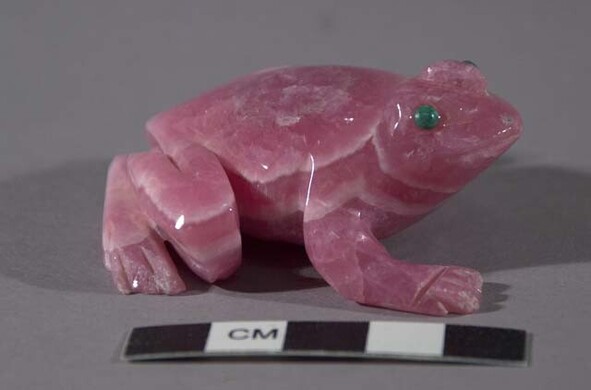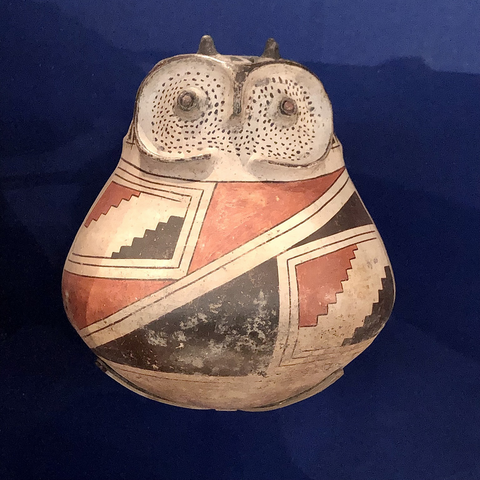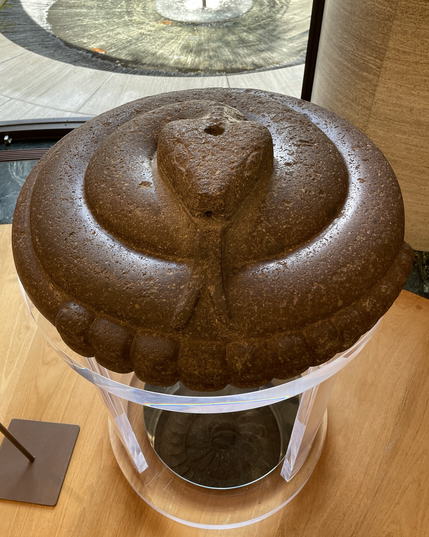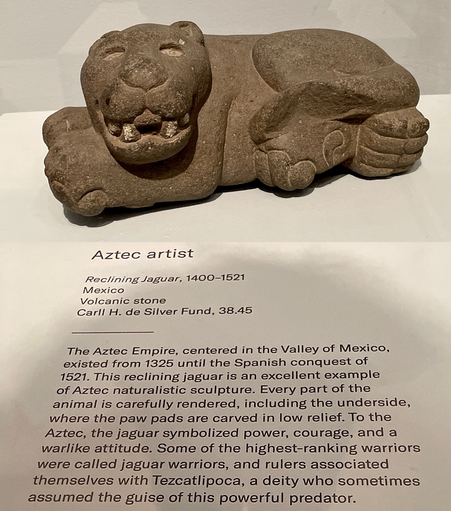Art History Animalia · @art_history_animalia
759 followers · 1192 posts · Server historians.socialA pretty in pink #TwoForTuesday from
the Harvard Peabody Museum collection:
1. Fetish frog
Yaqui culture, Sonora, Mexico
rhodochrosite w/ turquoise eyes
2.5x5.7x5.9cm
https://collections.peabody.harvard.edu/objects/details/599446
2 Fetish standing bear
Zuñi culture, New Mexico, USA
rhodochrosite w/ turquoise eyes & necklace
7x3.3x3.2cm
https://collections.peabody.harvard.edu/objects/details/599389
#twofortuesday #indigenousart #nativeamericanart #mesoamericanart
Art History Animalia · @art_history_animalia
609 followers · 1041 posts · Server historians.socialFor #OwlishMonday:
polychrome ceramic #owl pot
Mongollon, Casas Grandes
(Paquimé, Chihuahua, Mexico)
1150-1400 CE
18 cm h., 14 cm. dia.
Smithsonian’s National Museum of the American Indian collection 11/9883
#MesoamericanArt #IndigenousArt
#owlishmonday #owl #mesoamericanart #indigenousart
Art History Animalia · @art_history_animalia
604 followers · 1023 posts · Server historians.socialFor #WorldSnakeDay:
1. #Rattlesnake
#Aztec, 1200-1520 CE
Rhyolite porphyry
2. #Snake Head
Aztec, 1200-1520 CE
Serpentine (very fitting!)
both on display at Dumbarton Oaks Museum
#IndigenousArt #MesoamericanArt
#worldsnakeday #rattlesnake #aztec #snake #indigenousart #mesoamericanart
Art History Animalia · @art_history_animalia
521 followers · 950 posts · Server historians.social#Caturday:
Reclining #Jaguar, c. 1400-1521
#Aztec artist, Mexico
Volcanic stone
From Brooklyn Museum’s “Climate in Crisis: Environmental Change in the Indigenous Americas” exhibition
“To the Aztec, the jaguar symbolized power, courage, and a warlike attitude. Some of the highest-ranking warriors were called jaguar warriors, and rulers associated themselves with Tezcatlipoca, a deity who sometimes assumed the guise of this powerful predator.”
#caturday #jaguar #aztec #mesoamericanart #indigenousart



